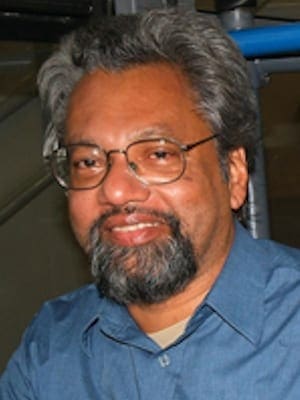The attitude of many laypersons to scientific and technical matters is one of reverence.
They will drink in the fake profundities of, say, television science programs with a credulity quite as remarkable as that of any religious fundamentalist.
Any statement has only to be prefaced with the words “scientists think…” or “scientists have shown…” for it to be received with exaggerated awe.
The advertising world knows this well and exploits it to the full. People dressed up to look like research scientists and doctors appear in advertisements for products from toothpastes to miracle diets.
Economists and bankers follow suit: anxious to bathe their work in the aura that attends the hard sciences, they mystify the public with largely meaningless numbers.
Few economists ask the simple human questions: What is wealth for? What is the good life? What are the costs of our “growth” and who bears them?
The London Olympics was sponsored by multinational giants like Coca-Cola and Nike whose scientific credentials had to be “hyped” for a gullible world public.
The website for Coca-Cola’s sports drink Powerade, targeted at the general public, states: “Drinking sports drinks, such as Powerade Isotonic, before intense exercise helps to ensure that you begin in a well hydrated and well fueled state. This can be particularly useful if you find it difficult to eat, or find you need many bathroom stops prior to exercising. Starting exercise well hydrated is vital; leaving it until you are on the field or track may be too late. This is particularly crucial for longer duration exercise, or activity undertaken in hot, humid conditions, and even for people whose primary exercise is actually manual labor.”
Powerade advises customers that “To avoid dehydration … you should drink before, during and after sport” and that, “You may be able to train your gut to tolerate more fluid if you build your fluid intake gradually.”
It even provides a “Hydration calculator” to work out how much Powerade Isotonic you will need before exercising.
Other drink manufacturers claim that “stimulants such as caffeine, guarana and taurine with energizing fast and slow release carbohydrates produces a scientifically proven range designed to enhance your overall performance.”
Red Bull says “in extensive studies it has been repeatedly proven that Red Bull increases performance.”
Where is the real scientific evidence that backs up such claims?
A joint study by the British Medical Journal and Oxford University’s Centre for Evidence-Based Medicine has debunked the myth of “hydration,” a fictitious disease created by the advertising industry.
The authors of the study write: “Drinking ahead of thirst may worsen performance in endurance exercise and carries a rare but serious risk of hyponatraemia. The body’s internal mechanism for staying hydrated is cheaper, easier and seems to be the best way to optimize performance.”
As for professional athletes, “Elite endurance athletes perform best when they drink to thirst; some studies suggest exercise induced dehydration can improve performance” (“Mythbusting Sports and Exercise Products“).
Regarding the use of energy drinks by professional athletes, the authors conclude: “Limited, low-quality evidence supports the use of energy drinks containing caffeine, taurine or guarana to improve endurance in moderate intensity activity of around 60 minutes. No studies compare the effectiveness of these products with ingesting caffeine alone and there are important concerns regarding harms.”
The Internet has, of course, made such scientific knowledge available to a wider public but sorting out genuine science from the bogus is not easy.
Unless a website carries peer-reviewed articles or belongs to a well-established professional institution, it is difficult not to be hoodwinked most of the time.
Internet search engines are not unbiased as some enthusiasts imagine.
Skeptics about anthropogenic global warming, for instance, find it easier to migrate to websites that reinforce their views rather than to those that challenge them.
How do we combine a healthy respect for evidence-based scientific study with an equally healthy disrespect toward the pronouncements of scientists on topics outside their particular realm of expertise?
One can share in the excitement surrounding the recent “discovery” of the Higgs Boson in the CERN Hadron Collider experiments, without capitulating to the myth that elementary particles are more important – indeed, “more real” – than the world experienced and inhabited by human persons; or labeling it a “god-particle” in some pseudo-scientific act of worship.
The “hype” by some scientists and popular philosophers about having come up with materialistic explanations for “everything,” including consciousness, should be treated with the same ridicule that most TV advertising deserves.
Raymond Tallis, the neuroscientist and philosopher whose book “Aping Mankind” (see my last column) is exemplary in how to combine good science with the debunking of scientific hubris, writes that: “Ultimately, a theory of consciousness will have to make sense of science and, more generally, knowledge itself: of the fact that the blind laws of physics have given birth to a sighted watchmaker who makes those laws visible and sees how they may be used to shape the world according to her perceived needs. There is at present nothing in matter as understood through natural sciences – no, not even in the wildest reaches of quantum mechanics – that would lead one to expect matter to assume forms in which it would become conscious, self-conscious and knowing, so that it might be able to formulate universal laws that encompass its own existence.”
Vinoth Ramachandra is secretary for dialogue and social engagement for the International Fellowship of Evangelical Students. He lives in Sri Lanka. A version of this column first appeared on his blog.
Secretary for dialogue and social engagement for the International Fellowship of Evangelical Students. He lives in Sri Lanka.

